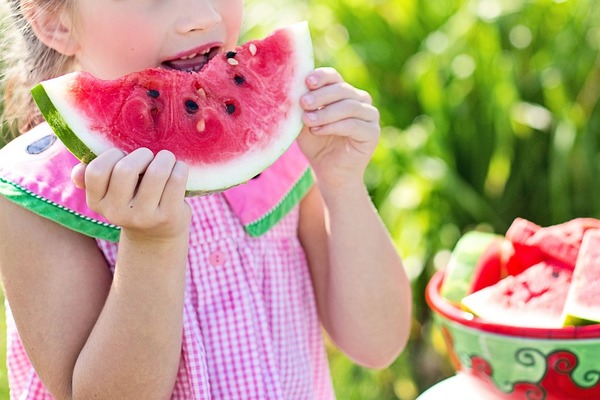By LIA SPENCER
IT’S easy to get overwhelmed when deciding on the right foods for your child. Is gluten bad? What about too much dairy? Must everything be organic or home-made? Let’s not even get started on sugars …
Many parents are turning to google and social media to get nutritional information, but Glow Clinic dietitian Konsita Kuswara said that while Facebook could be helpful to share stories and experiences, it must not replace professional medical advice.
“Nutrition is very prone to misinformation. The danger of being part of Facebook groups is being misinformed and dealing with its consequences. Sometimes the consequence is minor, but other times it can be major, such as a wrong diagnosis or inappropriate diet,” Konsita said.
“In particular, in the area of food allergies and intolerances, everybody’s symptoms can vary widely and they might have different tolerances to different components. The benefits are that everyone is free to express their opinions and share their stories without the risk of being ‘judged’ by a professional. However, to save yourself from feeling confused with conflicting information it is best if such group can be mediated by a qualified dietitian.”
Many parents are worried that they aren’t providing enough nutrition to meet their active child’s growing needs, that their children are not eating enough vegetables and whether preservatives, or additives in the food they do eat are harmful to their health.
Konsita said that in the old days people preserved foods using salt, sugar or oil.
“This was important as refrigeration was limited and it may not be practical to go hunt/fish/pick everyday,” she said.
Now, food companies use preservatives and additives to prevent spoilage in food and prolong shelf life. Other food additives are colours and flavour enhancers. The use of food additives is regulated by FSANZ (Food Standards Australia and New Zealand).
Some food additives as well as natural food chemicals have been linked to health problems in those who are intolerant. But to those people who are tolerant, Konsita advised against consuming too many foods with additives.
“Food additives and natural food chemical do not induce these symptoms (to people who are tolerant). However, it does not mean that it’s OK to consume food additives in bucketloads, because foods that have many additives tend to be the ones that have high amount of sugar/salt/fat added to it, which are not recommended for regular consumption,” she said.
“Avoiding all preservatives is fantastic if it works with your lifestyle, however, to most people who may not be able to prepare 100 per cent of their food from scratch, a little bit of food additives in healthy food should not be a problem. For example, most dried fruits are preserved with sulphites. Eating small amount of dried fruits as part of a healthy diet should not be discouraged to those who are not intolerant to sulphites.”
Konsita said besides social media, diet trends and grocery labels also added to misunderstanding of what’s healthy and what’s not.
“Food companies often put labels on their packaging inappropriately to make their products more desirable. For example, once I saw bananas advertised as cholesterol-free. Since when does banana contain cholesterol?” she said.
“Sugar-free doesn’t always mean that the food contain zero amount of sugar, but it may still contain natural sugar and that the company added sweetener to make the product still more appealing. Another hype is that gluten-free products are often seen as ‘healthier’ where in fact it might not be the case.”
So what advice does Konsita have for parents when it comes to feeding their children a well-balanced diet?
* Model and insist on healthy eating patterns for the whole family, including both parents.
* Provide structure around meals – offer healthy food options only every three to four hours and do not make meal times a battle.
* Create a positive environment around meal time and avoid distractions such as television or computers.
* Each child is different – some might like all food, some might naturally be pickier. Persist in offering healthy foods, even if it is rejected several times.
* Keep offering and be creative in altering the texture/taste. Sometimes raw is better accepted than cooked, or pairing it with a well-liked foods may be all it takes for them to accept the disliked foods.
* Don’t be scared to seek professional advice.
“If you believe that your child’s eating behaviour is impacting his/her growth then it is important to consult a health professional for help,” she said.
For more information visit www.glowclinic.com.au
Possible problematic preservatives:
* Sorbates.
* Benzoates.
* Sulphites.
* Nitrates, nitrites.
* Propionates.
* Antioxidants.
Possible side effects in children from food additives or natural food chemicals:
* Asthma.
* Skin rashes.
* Irritability and restlessness.
* ADHD.
* Colic/ reflux.
* Loose stools.
* Eczema or nappy rashes.
* Digestive upsets.








